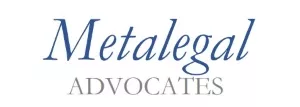Introduction
In the matter of Puneet Sabharwal v. CBI1, the Hon'ble Supreme Court ('SC') dismissed the appeals seeking to discharge the charges and held that exoneration in income tax ('IT') proceedings does not constitute sufficient grounds for dismissing charges under the Prevention of Corruption Act, 1988 ('PC Act'). The SC further held that IT assessments are not conclusive evidence for or against allegations of disproportionate assets or corruption.
Issue
In this case, a petition was filed by the Appellant challenging the order passed by the Delhi High Court ('DHC'). The Appellants contested the cognizance order of the Special Judge in the DHC seeking discharge. However, the DHC refused to dismiss the charges. Subsequently, the Appellants approached the SC, with the central question being whether the ITAT's order could justify the dismissal of the charges.
Brief Facts
- The Central Bureau of Investigation, the Respondent in this case, had pressed charges against both the Appellant and his son for criminal conspiracy under s. 120 B of the Indian Penal Code, 1860 ('IPC') (corresponding to s 13(2) of the PC Act, 1988) and aiding and abetting corruption under s 5(2) read with 5(1)(e) of the PC Act, 1947 (corresponding to s 13(2) read with 13(1)(e) of the PC Act, 1988).
- Additionally, the Respondent had specifically charged the Appellant under s. 5(2) read with 5(1)(e) of the PC Act, 1947 (corresponding to s. 13(2) read with 13(1)(e) of the PC Act, 1988) for possessing assets which were deemed disproportionate to the Appellants known income sources.
- The Anti-Corruption Bureau in New Delhi initiated an investigation on 23.08.1995, by filing a First Information Report ('FIR') against the Appellant, and a chargesheet was filed on 28.08.1995 against both the Appellants. The Special Judge then framed charges on the Appellant by passing an order on 21.02.2006.
- The allegations set out against the Appellants in view of the
above FIR are as follows:
- R.C. Sabharwal ('Appellant') held the position of Additional Chief Architect in the New Delhi Municipal Corporation ('NDMC') and during his various postings since 1968, he accumulated significant assets that could not be justified by his known sources of income.
- The assets the Appellant acquired were either in his name or in the name of his family members. The investigation period was considered from 20.08.1968 i.e., from the date the Appellant had joined as the Assistant Architect in NDMC up till 23.08.1995 i.e., the date of search.
- The Respondents had meticulously dissected the Appellant's income, examining his salary and spouse's salary and income from various businesses, companies, trusts, rental properties and more. Beyond declared expenses, the Respondents furthermore scrutinized movable assets and bank accounts held by the Appellant and his family.
- The Respondents listed a huge number of properties held by the Appellant which he could not justify with his known income sources which suggested a significant amount of unexplained wealth. It was further alleged that the Appellant had conspired with his son, Puneet Sabharwal. As part of the conspiracy, Puneet had received Rs. 79 lakhs through encashment of Special Bearer Bonds.
- The Respondents had argued that the Appellant, in furtherance of the conspiracy, had acquired assets through entities like M/s Morni Devi Brij Lal Trust and M/s Morni Merchants which supposedly benefited his son as the sole beneficiary, while the Appellant allegedly controlled their finances.
Arguments
Respondents for the Appellant argued about the age of the Appellant's son, who was a minor for most of the 20-year period under investigation. This cast doubt on the claim that he conspired with his father during that time. Furthermore, it was argued that DHC ignored the ITAT's decision, which exonerated the Appellant. Conversely, counsels for the Respondents argued that the criminal case against the Appellants should not be influenced by the ITAT order. It was further pointed out that the ITAT order was passed after the charges had already been filed, implying that the tax findings should not automatically halt the criminal trial.
Held
- The SC dismissed the current appeals and further instructed the coordinating Judicial Court to expeditiously conclude the matter by 31.12.2024 since the matter has been pending for more than 25 years.
- The DHC had dismissed the petitions of the Appellants, refusing to discharge them for the offence of possessing assets disproportionate to their known sources of income, and upheld the order dated 21.02.2006.
- The SC emphasized that decisions by the IT authorities, including the Appellate Tribunal and assessment orders, are not conclusive proof for dismissing the charges against the accused. The weight and relevance of these findings will be determined during a full trial. Therefore, the DHC's decision not to dismiss the case based solely on IT records was justified.
- The SC, relying upon the decisions of Radheshyam Kejriwal v. State of West Bengal2 and Surendranath Tewari v. CBI3, Onkar Nath Mishra v. State (NCT of Delhi)4 and State of Karnataka v. L. Muniswamy5, rejected the arguments of the defendants that their previous exoneration in a civil case should prevent criminal prosecution based on the same facts and that the appellants had not proved the charges to be groundless.
- The SC further observed that the age of the Appellant's son is irrelevant since he was not a minor for most of the period and that all defenses can be presented at trial, therefore, the SC did not consider the argument about the IT order, which emerged after the framing of the charge.
Our Analysis
The SC upheld the decision of the Delhi High Court, emphasizing the non-conclusiveness of IT documents in criminal proceedings as per the precedent in the State of Karnataka v. Selvi J. Jayalalitha6. IT returns and orders, while admissible, do not automatically validate or invalidate the legality of income sources under anti-corruption laws. Their probative value must be assessed in the context of each specific case, hence such documents do not ipso facto prove or disprove a charge.
Further, the SC emphasized that approval by IT authorities, including the ITAT and subsequent assessments, cannot alone nullify the allegations against the accused. Consequently, the SC rejected the defendant's claim that a favourable outcome in a civil case should preclude a criminal trial based on the same facts, reinforcing the principle that civil and criminal proceedings serve different legal purposes and standards of proof.
Footnotes
1. 2024 SCC Online SC 324
2. (2011) 3 SCC 581
3. (2020) 9 SCC 636
4. (2008) 2 SCC 561
5. (1977) 2 SCC699
6. (2017) 6 SCC 263
The content of this article is intended to provide a general
guide to the subject matter. Specialist advice should be sought
about your specific circumstances.

